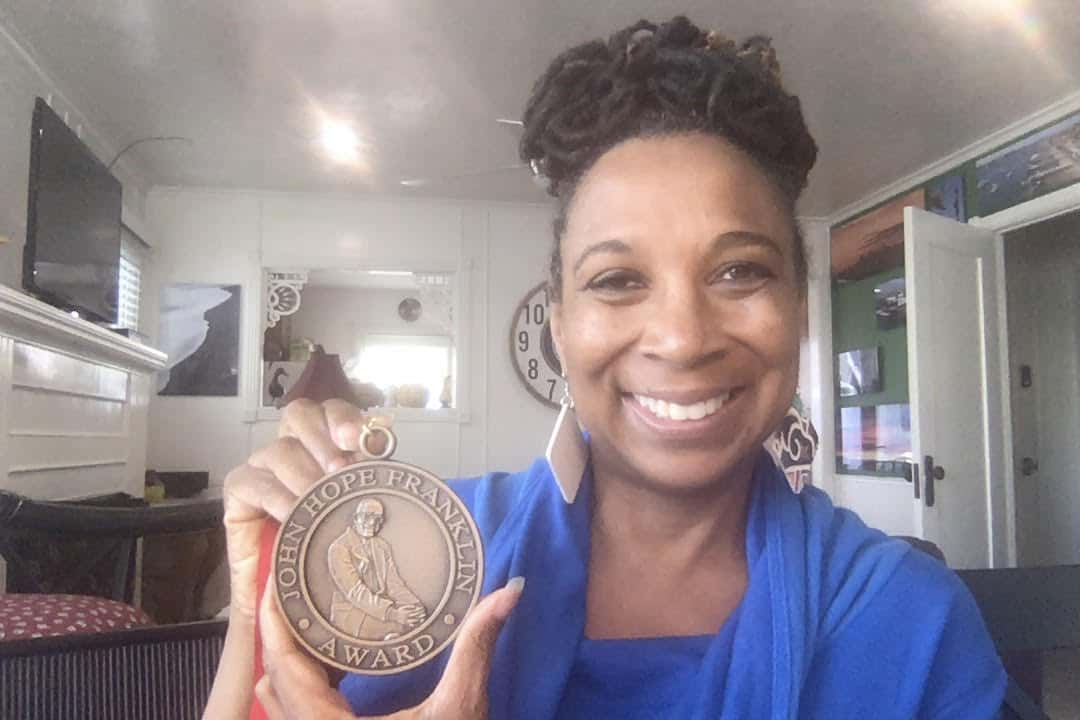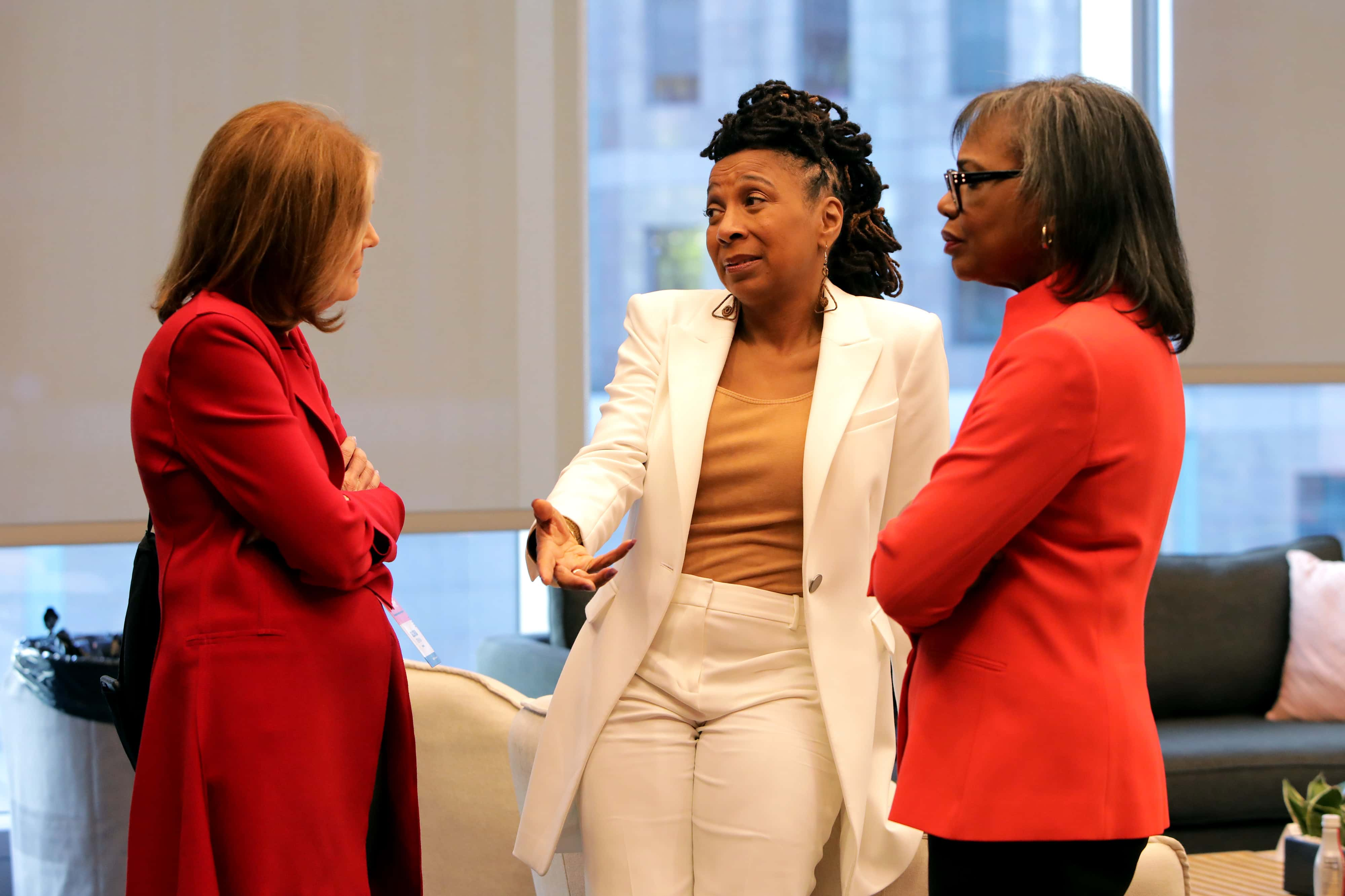Critical race theory: Who is Kimberle Crenshaw? How a workshop started a movement

Today critical race theory (CRT) is a notion that we all have heard. But back in the 1970s and 80s, it was a niche area of academic study by a handful of activists and academics, led by Derrick Bell and some others. One of those early pioneers was Kimberlé Crenshaw, while she was a faculty at Harvard Law School.
CRT is today a contentious and controversial topic, having been banned in states like Idaho and Florida. In other states, parents have started groups like 'Fight for Our Schools' to combat the spread of CRT education in schools. In 2020, the Trump administration attempted to limit the spread of CRT by ended diversity training at federal agencies. Nonetheless, others have fought back to preserve CRT.
RELATED ARTICLES
Who is Dana Stangel-Plowe? NJ teacher quits over school's critical race theory policies
One of those key figures in Crenshaw, who not only gave CRT its name, but also helped push for greater diversity and inclusivity in America, and beyond. Any history of CRT is incomplete without her name. But how did that happen? Here's everything you need to know about Crenshaw, and her contributions to CRT.

Who is Kimberlé Crenshaw?
An Ohio native, Crenshaw graduated from Cornell University in 1981. While at Cornell, Crenshaw noticed how the gender aspect of race was underdeveloped in college curricula. That led her to specialize in Black feminist theory, eventually leading to the introduction of "intersectionality" to feminist theory. In 1984, she received a JD from Harvard, and then a Masters of Law degree from the University of Wisconsin a year later.
Following her studies, Crenshaw joined the faculty at UCLA. It was here that she coined and helped propagate CRT. Her work led her to be nominated as Professor of the Year in 1991 and 1994. But before CRT, it was Crenshaw's work on intersectionality that made her famous. "It’s important to clarify that the term was used to capture the applicability of black feminism to anti-discrimination law," she told Newstatesman in 2014. Before her work, Black women faced challenges winning legal cases because courts believed that women and Black people weren't discriminated against, so Black women couldn't claim discrimination.
Her work is often cited as a major influence in the drafting of the equality clause in the South African Constitution. She has also lectured on race and gender in Europe, Africa, and even in India. In 2000, Crenshaw wrote the background paper on Race and Gender Discrimination for the United Nations’ World Conference on Racism. In 1996, Crenshaw co-founded the African American Policy Forum, and the Center for Intersectionality & Social Policy Studies in 2011. But beyond her academic work, Crenshaw also has strong experience in practical law application.
While at the University of Wisconsin, she clerked for Wisconsin Supreme Court Judge Shirley Abrahamson. In 1981, Crenshaw was part of the legal team that assisted lawyer Anita Hill during her testimony at the confirmation hearing of Supreme Court Justice Clarence Thomas. Since 1995, she has been a full-time faculty member of Columbia Law School, teaching constitutional law, civil rights, feminism, and CRT. She is also a professor at UCLA.

Crenshaw and CRT
While Bell is often called the 'Father of CRT', Crenshaw played an equally important role. During her time at Harvard, Crenshaw founded the 'critical race theory workshop', thus giving the ideology its name. At the time, prominent legal scholars believed that the US had become 'colorblind', with racial discrimination no longer an issue, especially in the law. But Crenshaw and Bell disagreed. To them, racism still persisted, especially in the law. Like Bell, Crenshaw argued that racism and white supremacy were defining elements of the American legal system. She told CNN that formative CRT scholars "took up the task of exploring the role that law played in establishing the very practices of exclusion and disadvantage."
In 1993, Crenshaw was one of the several authors of the book 'Words That Wound: Critical Race Theory, Assaultive Speech, and the First Amendment'. That work, along with others by Bell, Mari Matsuda, and Richard Delgado helped lay the foundations for CRT in academia. As part of her efforts to highlight the need for CRT, Crenshaw published numerous articles and books. She most famously served as the co-editor for 'Critical Race Theory: Key Documents That Shaped the Movement'.
Crenshaw is still an active part of the push to make CRT a standard in America. Apart from her teaching, she also frequently writes articles and speaks at conferences and events. She is also credited with highlighting the #SayHerName campaign, whose goal it is to uplift the stories of Black women killed by the police. In many ways, Crenshaw's work on intersectionality has paved the way for Black women in America, combined with her work on CRT.
Crenshaw and Bell began by pushing legal scholars to acknowledge the role of racism in the law and encouraged action to eliminate it. From there, CRT has now grown to encompass housing, education, and a variety of other areas. "At this point, it is wider than any specific discipline or school of thought. It isn't even exclusively American," she said.










